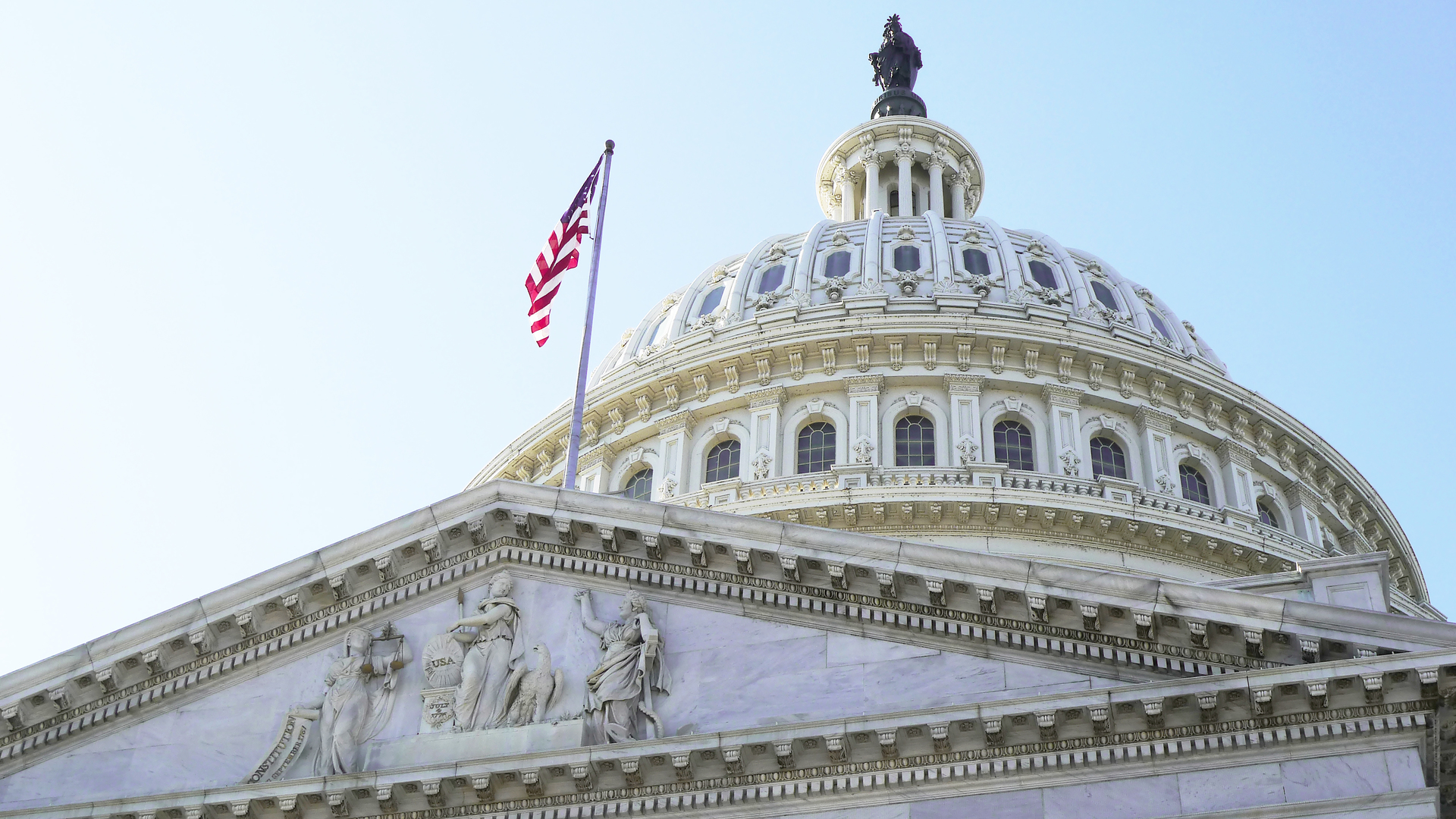Q&A with the Cencora Office of U.S. Public Policy and Advocacy
By Lisa Harrison, Beth Mitchell
Cencora is committed to keeping our customers informed about government and legislative actions that impact community-based specialty practices. In our previous Q&A from October 2024, we discussed the Centers for Medicare & Medicaid Services’ (CMS) release of the calendar year 2025 Medicare Physician Fee Schedule Proposed Rule. You can read that article here.
In this edition, Lisa Harrison, SVP & President, Specialty Distribution and Solutions at Cencora, and Beth Mitchell, VP of U.S. Public Policy and Advocacy at Cencora, will shed light on a number of key topics including current priorities for the U.S. federal government, updates on The Seniors’ Access to Critical Medications Act of 2024, important takeaways from the finalization of the calendar year (CY) 2025 Medicare Physician Fee Schedule Rule, and more.
Important note: This article does not reflect any developments that may occur following its published date and is not intended to express direction, opinions, or guidance on behalf of the U.S. government, Cencora, or any entities mentioned below.

Current priorities for the U.S. federal government

Lisa Harrison (LH):
Beth, it’s great to have you here today. There’s quite a bit that I hope to discuss with you, so let’s jump right in. Coming off the heels of the November presidential election, could you summarize what the federal government is focused on as we look ahead to 2025?



Beth Mitchell (BM):
Absolutely, Lisa. The current priority is funding for the 2024–2025 fiscal year to avoid a government shutdown. Congress is required to continue funding and to do so they must pass appropriations legislation by December 20. With that date quickly approaching, both the Senate and House of Representatives must vote to pass a spending package or a stopgap that delays the issue until 2025.
Attached to this funding package are policy initiatives that could include Medicare provisions which are set to expire soon, largely on December 31, 2024. In this “lame duck” session, which is defined as the final period of office after the election of successors, it’s possible that these policies will also receive an extension until 2025 – in the same timeframe as the government funding and debt limit mentioned previously.
Outside of those topics, a few other priority items include passing a defense bill, an extension of the Agriculture Improvement Act of 2018 (commonly known as the Farm Bill), and disaster relief funding.

LH: It seems like there are quite a few items requiring attention from policymakers right now. How does your team help ensure that the topics that are most critical to specialty practices don’t get lost amongst everything that is happening currently?
BM: As a distributor, Cencora is in a unique position to amplify the voices of stakeholders throughout the entirety of the supply chain. Our expertise and unwavering commitment to supporting the future of specialty care are at the forefront of everything we do. We actively engage with U.S. policymakers and industry leaders to ensure that the voices of our customers are heard on the most pressing issues affecting their practices and their patients.
Stark Fix
LH: I couldn’t have said it any better, Beth. Our commitment to supporting specialty practices has never been stronger. With that said, there is one bill that I want to specifically touch on with you – the “Stark Fix”, or the Seniors’ Access to Critical Medications Act of 2024.
BM: Of course. For background – Under the Centers for Medicare & Medicaid Services’ (CMS) interpretation of the Stark Law, also known as the Physician Self-Referral Law, it’s considered unlawful for a medical practice to deliver a prescribed and filled drug to a patient by mail. CMS’ interpretation also prohibits a family member or caregiver from picking up a patient’s drug on their behalf. During the COVID-19 pandemic and public health emergency (PHE), CMS recognized these barriers and issued a Stark waiver lifting these restrictions. These waivers expired after the PHE ended causing concern as patients can no longer have their caregivers pick up their medication or have it shipped. To resolve this, The Seniors’ Access to Critical Medications Act of 2024 (the “Stark Fix” or H.R. 5526/S. 3458) would restore these flexibilities1.
This bill was introduced by U.S. Rep. Diana Harshbarger (R -TN) and Debbie Wasserman Schultz (D-FL), with original co-sponsors Reps. Chuck Fleischmann (R-TN), Donald Davis (D-NC), Mariannette Miller-Meeks (R-IA), and Troy Balderson (R-OH) in September 2023. U.S. Senators Kyrsten Sinema (I-AZ) and Marsha Blackburn (R-TN) introduced the Senate companion legislation in December 2023. The bill has passed unanimously in the House of Representatives and now sits with the Senate.
In summary, this bill would amend Section 1877 of the Social Security Act to clarify that prescribed medications can be delivered by mail, courier, and other methods, and allow family members or caregivers to pick up medications on behalf of a patient – with these actions falling within the scope of commonly accepted Stark Law exceptions. It would also require CMS to revise its current interpretation of the Stark Law and rescind their previously issued FAQ on the matter.
Notably, concerns have been raised regarding the reporting section of the bill and the potential for abuse. Cencora’s Washington, DC lobbyists have strongly reiterated our support for the Seniors’ Access to Critical Medications Act to both congressional champions and pharmacy organizations. Cencora will continue to lead productive conversations with industry partners, advocacy organizations, and government officials to understand the broader landscape and to help address any policy concerns regarding this legislation.
LH: Thank you, Beth. I just want to take a moment to reiterate that Cencora endorses this bill and commends Congress for its actions so far in response to CMS's interpretation of the Stark Law. The dedication of our customers and team members has been instrumental in ensuring our voices are heard and that this issue is addressed effectively.
Medicare Physician Fee Schedule Rule
LH: Another topic that is very important to our specialty physician customers is the 2025 Medicare Physician Fee Schedule Final Rule. What should we be aware of?
BM: The calendar year (CY) 2025 Medicare Physician Fee Schedule (MPFS) Rule was finalized on November 1, 2024, to be effective on or after January 1, 2025. Full details are available via the fact sheet released by CMS.
The 2025 MPFS includes a 2.93% reduction in average payment rates and a 2.83% reduction in the conversion factor2 – continuing the trend of CMS proposing and finalizing a conversion factor reduction that results in a pay cut for providers.
LH: Are you hearing any concerns on Capitol Hill regarding this trend of reimbursement cuts and their repercussions?
BH: The GOP Doctors Caucus is spearheading an effort to mitigate these payment cuts by recently introducing a bill called the Medicaid Patient Access and Practice Stabilization Act3. This bill proposes a 4.73% increase in payment across the board for calendar year 2025 specifically, in part to mitigate the 2.83% reduction in the conversion factor and also to account for the increase in practice expenses due to other factors.
Other common concerns that we are hearing include:
- Lack of adjustments to account for inflation year over year
- The Merit-based Incentive Payment System (MIPS) reporting system is overly burdensome
- The MIPS reporting system is not the most effective at measuring quality
Congress, particularly through the Medicare Payment Advisory Committee (MedPAC), recognizes the unsustainable trend and is examining the Medicare Access and CHIP Reauthorization Act (MACRA) system to identify opportunities for improvement.
It’s also worth noting that Congress has previously given a retroactive bump in payment rate to physicians. Although the ideal solution is more equitable payment upfront, this is another option that must be considered.
LH: It’s reassuring to hear that conversations are happening and that there appears to be clear recognition that these reimbursement cuts are unsustainable and pose significant risks to the stability of the community healthcare landscape.
Additional updates
LH: Have there been any other policy developments that you believe our customers should be paying attention to going into 2025?
BM: Actually, yes. The Biden administration recently proposed a rule entitled Contract Year 2026 Policy and Technical Changes to the Medicare Advantage Program, Medicare Prescription Drug Benefit Program, Medicare Cost Plan Program, and Programs of All-Inclusive Care for the Elderly (CMS-4208-P).
This rule proposes to reinterpret the statutory prohibition on Medicare coverage of GLP-1 drugs. While Medicare Part D enrollees currently have access to some GLP-1 drugs for indications other than obesity4, this proposal would allow Medicare to cover anti-obesity medications when the beneficiary has a diagnosis of obesity. This could potentially further complicate the implementation of the Medicare Drug Pricing Negotiation Program under the Inflation Reduction Act (IRA). Under this, CMS is required to announce the selected drug list for the next 15 Part D drugs on or before February 1, 2025, with anti-obesity medications under consideration.
The chances of the Biden administration being able to finalize these proposed changes prior to the Trump administration taking over are very slim. So, the question becomes, will the Trump administration decide to pick up where the Biden administration leaves off?
Thank you, Beth and Lisa, for providing valuable insights into the significance of the current legislative landscape and the ongoing efforts of Cencora and our industry partners to support community care. We remain dedicated to advocating on behalf of our customers and ensuring that quality, affordable care remains accessible to all patients. Stay tuned for our next quarterly update, where we will continue to shed light on the latest government affairs.
Sources
- Harshbarger, M. (2024, September 25). House passes Rep. Harshbarger's H.R. 5526, Seniors Access to Critical Medications Act. U.S. House of Representatives. https://harshbarger.house.gov/media/press-releases/house-passes-rep-harshbargers-hr-5526-seniors-access-critical-medications-act
- Centers for Medicare & Medicaid Services. (2024, November 1). Calendar year (CY) 2025 Medicare physician fee schedule final rule. https://www.cms.gov/newsroom/fact-sheets/calendar-year-cy-2025-medicare-physician-fee-schedule-final-rule
- American Medical Association. (2024, October 31). New bipartisan bill would stabilize Medicare physician pay. https://www.ama-assn.org/practice-management/medicare-medicaid/new-bipartisan-bill-would-stabilize-medicare-physician-pay
- Medicare coverage of anti-obesity medications | Aspe. (2024, November 26). https://aspe.hhs.gov/sites/default/files/documents/127bd5b3347b34be31ac5c6b5ed30e6a/medicare-coverage-anti-obesity-meds.pdf






